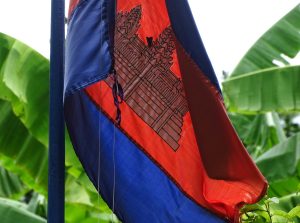Cambodia urgently needs to restart its domestic political process to avoid joining Myanmar in international isolation.
The Paris Peace Agreements on Cambodia were signed 30 years ago. The agreement was a major international achievement to end more than a decade of war in Cambodia. It stipulates that the country must hold free, fair, and competitive elections. The United Nations organized the first elections in the country in 1993, but the world decided too quickly that the job was done and forgot about Cambodia. The mandate of the United Nations Transitional Authority in Cambodia (UNTAC) ended after the elections.
In subsequent years, the workings of the electoral system never fully satisfied neutral observers, and the National Election Committee appeared to be under the control of the ruling Cambodian People’s Party (CPP). The system broke down completely in 2017, with the dissolution by the country’s Supreme Court of the opposition Cambodia National Rescue Party (CNRP).
This led in 2018 to elections that were plainly not free and fair, as the ruling party faced no opposition and won all the national assembly seats. The leader of the CNRP, Kem Sokha, faces trial on a charge of treason, which has been indefinitely postponed. The charge against him was used as the reason for the dissolution of the CNRP. The fact that the charge against Kem Sokha remains unsubstantiated means that there are no evidential grounds for the banning of the opposition, and thus Cambodia is in breach of the Paris Peace Agreements.
The United Nations Special Rapporteur on the situation of human rights in Cambodia is Thai law professor Vitit Muntarbhorn, who was appointed in March this year. Muntarbhorn has wide international experience, including serving as Special Rapporteur for North Korea. As an Asian who understands the complexities of the region’s politics, it is to be hoped that his voice will be listened to.
Muntarbhorn’s mandate is drawn from the Paris Peace Agreements, and his message so far has been clear. He has highlighted the plight of human rights defenders currently being held in Cambodian’s overcrowded prisons, the convictions of senior opposition political figures, and the ongoing harassment of journalists.
“Suspend draconian laws and reform them,” Muntarbhorn told Cambodia’s rulers in October. “Drop court cases and end the detention of those who disagree with the authorities. Restore political rights to members of the political opposition, and propel reconciliation. Share the power and end the monopoly.”
A fundamental step that needs to be taken immediately is releasing all of Cambodia’s political prisoners. Those arrested include a teenager with autism, who has been detained for months simply for criticizing the government online. His father was active in the CNRP, and the child faces up to two years in prison if convicted. Muntarbhorn has denounced this detention as a breach of the U.N. Convention on the Rights of the Child, which Cambodia has ratified.
Another crucial provision of the Paris Peace Agreements is that Cambodia committed to a policy of international neutrality, which is also laid down in the country’s constitution. This provision is also arguably being breeched, as Cambodia tilts more and more toward authoritarian China.
This provision concerns the security of the whole Southeast Asia region and beyond. Port infrastructure is crucial to China’s Belt and Road Initiative, through which China has extended its influence across many parts of Asia and Africa. The Wall Street Journal reported in 2019 that Cambodia and China had agreed to allow China to station armed forces at a navy base near Sihanoukville. Cambodia’s government has denied the reports but has not been fully transparent about the uses to which the Ream naval base is being put.
The Association of Southeast Asian Nations, ASEAN, has shown that a more positive stance on democratic rights in the region is possible if the political will exists. In a major rebuff to the coup, the leader of Myanmar’s military junta, Min Aung Hlaing, was not invited to last week’s ASEAN summits. This marks a clear, welcome break with ASEAN’s traditional policy of “non-interference.”
Cambodia takes over the chairmanship of ASEAN at the end of this year. The last time that Cambodia held the chair in 2012, it damaged the credibility of the regional grouping by blocking a joint statement that criticized China’s actions in the South China Sea. A more constructive approach will be needed this time. Cambodia cannot allow itself to join Myanmar as a laggard within ASEAN in the implementation of democratic norms to which it is legally committed.
Cambodia has local communal elections set for June 2022 and national elections in July 2023. The false electoral exercise that took place in 2018 must not become the norm. The country has already alienated many Western allies, on which it depends for export markets, and has lost part of its export privileges to the European Union. Cambodia cannot afford to risk the loss of further markets.
The time has come for the government to heed the broader shift with ASEAN which the Myanmar coup has prompted, and move to reinstate the opposition party and the process of competitive democracy.

































